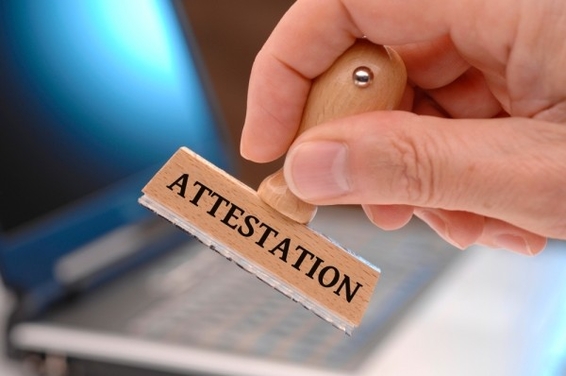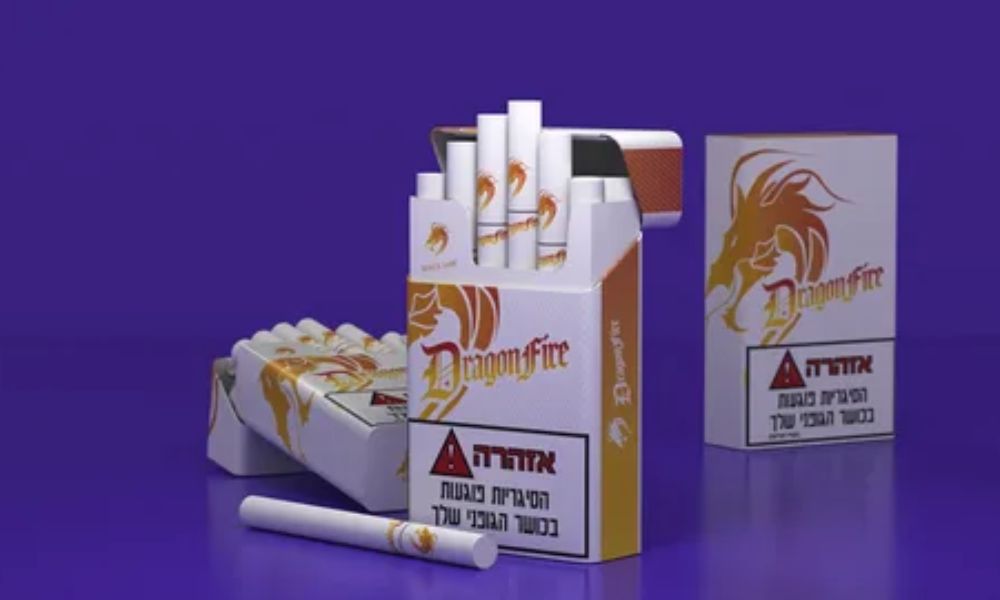Securing a job abroad is a dream for many, offering opportunities for career growth, financial stability, and cultural experiences. However, the journey to working overseas comes with its own set of formalities, one of the most critical being the attestation of documents. Ministry of Foreign Affairs (MOFA) attestation stands out as a fundamental step in this process, simplifying the verification of an applicant’s credentials and easing their transition to working internationally. This article explores how MOFA attestation plays a pivotal role in facilitating overseas job applications, addressing the reasons for its importance, the process involved, and how it ultimately simplifies the path to international employment.
Understanding Ministry of Foreign Affairs Attestation
Ministry of Foreign Affairs attestation is a form of document authentication that verifies the legitimacy of an individual’s documents. In the context of overseas job applications, this attestation assures foreign employers and governments that the applicant’s qualifications and identity are credible and legally valid. The types of documents commonly attested through the MOFA include educational certificates, employment records, personal identification documents, and in some cases, family documents like marriage certificates if dependents are involved.
Typically, MOFA attestation is the final attestation step in a series of verifications, including notarization by local authorities and authentication by the respective ministry (such as the Ministry of Education or Ministry of Justice) where the document was issued. After these initial attestations, MOFA’s seal is added as the final stamp of authenticity, making the document acceptable for use in foreign jurisdictions.
Why is MOFA Attestation Important for Overseas Jobs?
The MOFA attestation serves multiple purposes, all aimed at ensuring that both the job applicant and the foreign government are protected and informed. Here are some of the key reasons MOFA attestation is crucial in overseas job applications:
-
Legitimacy of Documents: Employers and immigration authorities in other countries require proof that an applicant’s documents are not forged. MOFA attestation provides this by authenticating documents at the national level, which adds credibility and trustworthiness.
-
Prevention of Fraud: With the rising incidences of forged documents in job applications, foreign employers and immigration authorities have become cautious. MOFA attestation helps curb fraudulent claims by guaranteeing that only genuine documents are approved for international use.
-
Legal Compliance: Different countries have unique requirements regarding document verification, especially for work visas and residency permits. In many nations, MOFA attestation is either mandatory or strongly recommended for compliance with immigration laws.
-
Enhancing Employability: A MOFA-attested document can make an applicant more attractive to foreign employers by demonstrating that they are fully prepared and legally compliant with international standards, potentially increasing the chances of securing a job.
-
Facilitating Dependents’ Visa Processing: For applicants who intend to bring their families along, attested family documents like marriage certificates or birth certificates are often needed. MOFA attestation smooths the process for dependent visas, ensuring that the entire family is legally accounted for.
How MOFA Attestation Simplifies the Overseas Job Application Process
Though the attestation process may seem complex, MOFA attestation significantly simplifies various steps in the overseas job application process, easing the administrative burden for applicants and making their transition to a new job more straightforward. Let’s explore some of the ways this attestation streamlines the journey.
1. Uniformity in Document Processing
Every country has distinct documentation requirements, and navigating these can be daunting for applicants. MOFA attestation standardizes the process to an extent by ensuring that documents are already verified by a recognized national authority before they even reach foreign hands. This attestation serves as a universally understood stamp of credibility, minimizing the likelihood of additional verification demands from foreign employers or immigration authorities.
2. Faster Visa Approval
For individuals applying for work visas, MOFA attestation often speeds up the visa approval process. Since the documents have already passed through several levels of verification, embassies and consulates are more likely to approve applications swiftly, as MOFA-attested documents carry more weight and less risk. With quicker visa processing, applicants can join their overseas employers sooner, reducing the waiting time for both parties.
3. Reduced Paperwork and Hassle for Applicants
MOFA attestation reduces the need for additional verifications that might otherwise be required by foreign authorities. By consolidating several verifications into one, applicants save both time and effort. Instead of getting separate attestations for each step of the process abroad, they can complete everything in their home country, easing the complexity of managing multiple levels of authentication in a foreign setting.
4. Enhanced Trust with International Employers
When employers see that an applicant’s documents are MOFA-attested, they gain confidence in the authenticity of the qualifications and credentials being presented. This trust can be especially valuable in cases where applicants are competing against candidates from countries with varying education standards. MOFA attestation levels the playing field, making it easier for foreign employers to understand the validity of an applicant’s credentials.
5. Safeguarding Against Rejection
For those applying in sectors with strict credential requirements (like healthcare, engineering, and education), MOFA attestation is especially valuable in preventing rejections. Unattested or improperly attested documents may lead to the disqualification of applications, causing delays and added costs for applicants. By securing MOFA attestation, applicants can avoid these pitfalls and present a fully validated application to prospective employers.
The MOFA Attestation Process: Step-by-Step
While the specific procedure may differ slightly by country, the MOFA attestation process typically follows these steps:
-
Notarization: The document must first be notarized by a notary public or an authorized official in the applicant’s home country. This step verifies that the document is genuine and that the signatures or seals on it are valid.
-
Verification by Local Authority: For documents like educational certificates, additional verification by a relevant ministry, such as the Ministry of Education, is required. For personal documents like marriage certificates, attestation by the local municipal office or registry is necessary.
-
MOFA Submission: Once the document is verified by relevant authorities, it is submitted to the Ministry of Foreign Affairs. MOFA officials then review the document, ensuring it has passed through the necessary verifications. They apply a final seal or stamp of approval, making it ready for international acceptance.
-
Embassy or Consulate Attestation: Depending on the destination country’s requirements, applicants might need to have the document attested by the embassy or consulate of the foreign country where they intend to work. In some cases, this step can be avoided if the destination country recognizes MOFA attestation alone.
-
Document Translation (if required): For countries with different official languages, applicants may need to translate the attested documents into the required language, often through a certified translator, before submitting them to foreign employers or immigration authorities.
Challenges in MOFA Attestation and How to Overcome Them
Despite the benefits, MOFA attestation can sometimes be challenging due to paperwork, procedural intricacies, or delays. Here are common issues and tips for addressing them:
-
Lengthy Processing Times: MOFA attestation can take time, especially during peak travel or hiring seasons. Applicants should initiate the process well in advance of their anticipated job start date to avoid delays.
-
Document Rejection: Incomplete or improperly verified documents are a common reason for rejection. Applicants should ensure all necessary preliminary attestations are completed before submitting documents to MOFA.
-
Hiring an Attestation Service: Professional attestation services can help applicants navigate the process, providing guidance on document preparation, requirements, and handling all verifications from start to finish.
How to Decide When You Need MOFA Attestation
Not all overseas job applicants need MOFA attestation. Here are some scenarios where it’s necessary:
-
Employment in Regulated Fields: Professions like medicine, engineering, teaching, and law often have stringent documentation requirements for foreign workers.
-
Dependent Visa Applications: Applicants bringing family members need MOFA-attested family documents to facilitate visa processing for their dependents.
-
Visa Sponsorship Requirements: If the employer or country sponsoring the visa specifies MOFA attestation, it becomes a mandatory step.
Conclusion: Building a Smoother Path to International Careers
In today’s globalized job market, where cross-border career moves are increasingly common, MOFA attestation has emerged as an essential process for international job seekers. By verifying the authenticity of key documents, it simplifies the transition to overseas employment, enhancing trust with foreign employers and reducing bureaucratic hurdles. Through MOFA attestation, applicants can ensure their credentials are universally recognized, paving the way for exciting career opportunities abroad. Whether you’re an experienced professional or a fresh graduate, securing MOFA attestation early in the process can be the key to making your overseas job application smoother, faster, and more successful.




